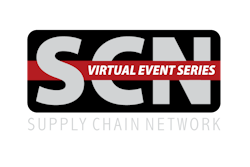
Transitioning linear economies toward circular models has never been more pressing. The Coronavirus disease (COVID-19) has affected the entire supply chain, and in the process, raised questions about globalization and the need to restructure operations to allow for shorter supply loops. Industry leaders who are quickest to implement circular economy practices will be able to navigate challenges, such as those brought on by the pandemic, and rebound more resilient than before, positioning themselves to face larger, future environmental and social crises.
When crisis strikes, circularity is a powerful advantage
When the outbreak first occurred, supply chains were intensely strained with labor shortages, factory closures, logistical problems, stock shortages or delays from ruptures in deeper supply tiers, cash flow issues and more. But, we also saw companies spring into action, embracing the spirit of adaptability - and circularity - by pivoting their business operations to produce urgently needed supplies.
In general, those who have already implemented circular economy and sustainable procurement principles are better positioned for resiliency and success as they tend to be more diversified, are more resource efficient and have stronger supply networks. They experience many economical, social and environmental benefits that help them meet evolving sustainability goals. In a world where you are only as resilient as your least resilient supplier, having processes that prioritize sustainability and minimize environmental footprints leads to better market value, less stakeholder conflicts and increased procurement value.
A New Normal depends on how you rebound
In the face of adversity, it’s tempting to suspend or bypass sustainability initiatives. This would be shortsighted. Many of the issues facing us pre-pandemic, such as single-use plastic, climate change, labor conditions and food waste are just as important today as they were last year. The companies that prioritize sustainable procurement as they rebuild will have a huge head start on creating long-term resiliency and reducing risk.
COVID-19 gives companies a new opportunity to address expanding environmental, social and governance challenges, especially as executives consider reconstructing supply chain strategies from the ground up. During this New Normal, those that emphasize supply chain sustainability and circular economy principles will be favored by investors – as hundreds of studies have shown that sustainable equities outperform in a bull market and are also more resilient in a bear market by consumers who are prioritizing environmental responsibility.
Key factors to success
You cannot implement circular processes alone. Typically, procurement collaborates internally with product, engineering, operations and finance; externally with a network of partners, including supply, distribution and logistics; and also with stakeholders to think holistically to design truly shared value. To follow circular economy principles, start by challenging the status quo – this requires innovative, out-of-the-box thinking that cannot exist in silos. Engage your entire organization from the top down, across departments and throughout the supply chain.
Getting to know your suppliers and partners on an individual level will also help you better understand their capabilities and ability to innovate on environmental practices. Perhaps there’s a chance to implement take back programs and infrastructures or maybe there’s opportunity to incentivize consumers and create sustainable business value from waste. No matter what the situation, the following rings true: always assess suppliers’ and partners’ sustainability maturity and readiness, and collaborate with them to improve performance, as doing so will position you to proactively react and engage.
COVID-19 has accelerated the implementation of circular economy principles and sustainable procurement practices due to the proven efficiency, resiliency, collaboration and innovation gains. As organizations reconfigure their supply chains in favor of shorter and more sustainable supply loops, local and global efforts will need to work in tandem – those that figure out a way to do this are the ones that will succeed in the new normal of circularity. While circularity won’t instantly fix all the problems facing your supply chain during this crisis, it will play a key role in developing the flexibility and resiliency needed for the future.


















